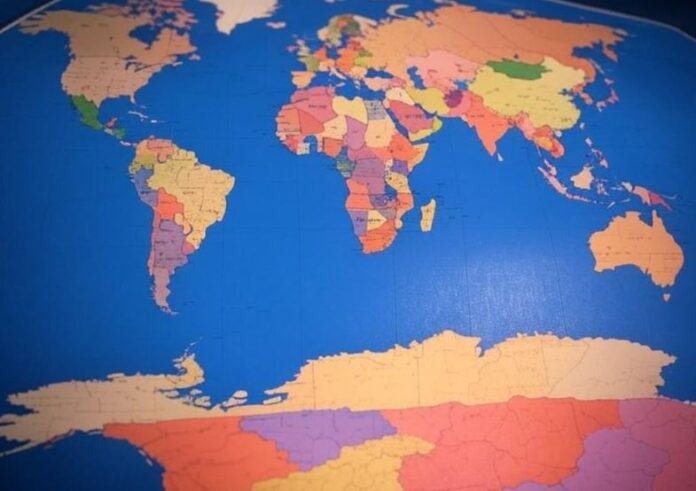As we usher in 2025, the world is gearing up for a series of elections that could reshape political landscapes across continents. Here’s your comprehensive look at the pivotal votes scheduled around the globe:
North America:
- United States: While the presidential election was in 2024, the political environment continues to evolve with Donald Trump’s return to office, influencing the global stage as we head into 2025.
- Canada: Anticipated elections in Canada could bring new dynamics to the country’s political scene, with a potential focus on environmental policies and economic recovery strategies.
- Also Read: Six Things We Hope to Avoid in 2025
Europe:
- Germany: An early snap vote in February, following the collapse of the coalition government, is set to be a bellwether for Europe, particularly given the economic challenges the country faces.
- Norway, Ireland, and Poland are also on the electoral calendar, each with its unique set of issues like energy, immigration, and economic policies at the forefront.
Latin America:
- Chile: With national elections scheduled for November, all eyes will be on whether the opposition, led by figures like Evelyn Matthei, can capitalize on voter discontent.
- Argentina, Bolivia, Ecuador are among the countries holding significant elections, potentially influencing regional stability and economic policies.
Asia and Oceania:
- Japan: Elections here could see shifts in policy concerning economic recovery, defense, and international relations, especially with ongoing regional tensions.
- Australia: With both Senate and House elections, the political landscape might see changes, particularly in environmental and indigenous policies.
Africa:
- Belarus: Alexander Lukashenko’s seventh term bid in January could further entrench his rule, amidst continued international scrutiny over democratic processes.
- Malawi, Tanzania, and Seychelles are also set to hold elections, each with implications for regional stability and governance.
Other Notable Elections:
- From Albania to Czechia in Europe, and Singapore to Sri Lanka in Asia, these elections span a wide array of political systems and challenges, from corruption to economic development.
Calendar Wise:
1. Comoros Legislative Election (January 12)
On January 12, Comoros will hold its legislative elections, with voters choosing representatives to serve in the national assembly. These elections are crucial for the country’s democratic process and will determine the future direction of policies in a region facing challenges like economic instability and climate change.
2. Belarus Presidential Election (January 26)
Belarus will head to the polls on January 26 for its presidential election, with global attention focused on the country’s democratic integrity and the political climate under President Alexander Lukashenko. After years of international scrutiny, this election could signal important shifts in governance and Belarus’s foreign policy.
3. Togo Senate Election (February 2)
Togo’s Senate elections are scheduled for February 2, offering voters the chance to choose their representatives in the country’s legislative body. With a focus on issues like regional stability and economic development, these elections are expected to play a crucial role in shaping Togo’s future political landscape.
4. Kosovo Parliamentary Election (February 9)
On February 9, Kosovo will hold parliamentary elections that could dramatically influence the country’s path toward greater European integration. Voters will choose a new government, with discussions around economic growth, security, and foreign policy likely taking center stage.
5. Albania Parliamentary Election (May 11)
In a historic move, Albania’s parliamentary elections on May 11 will allow Albanians living abroad to vote electronically or by mail for the first time. This significant change reflects Albania’s evolving democratic process and could alter the country’s political balance. Economic development and regional cooperation are expected to be key themes in the election campaigns.
6. Philippines General Election (May)
The Philippines will hold its general elections in May, determining new leadership across multiple levels of government. With pressing issues like corruption, poverty, and the country’s foreign relations with China, the outcome of these elections will have major implications both domestically and internationally.
7. Germany Federal Election (February)
Germany’s federal election, scheduled for February, comes after Chancellor Olaf Scholz’s coalition government faced significant challenges. The election will test the strength of Germany’s political alliances and could reshape the nation’s policies on climate change, immigration, and the European Union.
Implications for Global Democracy:
2025 is not just about changing governments; it’s about the direction of democracy worldwide. With a significant portion of the global population going to the polls, these elections could either fortify democratic institutions or highlight the fragility of democracy in an age of disinformation and polarization. The focus on combating hate speech and ensuring voter safety online is also a critical theme, as noted by initiatives from organizations like the United Nations Development Programme.
As these elections unfold, the world watches not only for changes in leadership but for the broader implications on international relations, economic policies, and human rights. Each election brings with it a chance for renewal or a continuation of the status quo, setting the stage for a year where every vote could indeed change the world.



